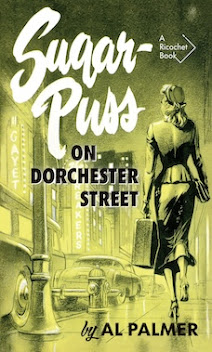
National Poetry Month, a time for balloons, ice cream and marching bands. I risk spoiling the party by pointing out, yet again, that William Arthur Deacon's The Four Jameses remains unavailable and, as if to add insult to injury, not one work by the critic's "monarchs of the quill" is in print. No James Gay, no James McIntyre, no James D. Gillis, no James MacRae... and yet brand new copies of Gordon Downie's Coke Machine Glow may be easily obtained through Amazon.ca.

I devoted last National Poetry Month to James MacRae, the son of Glengarry, whom I followed in adopting the little Ontario town of St Marys as my own. This year I'll be reading verse by Ingersoll's James McIntyre. Of the Four Jameses, McIntyre is certainly the best remembered – not one of the others has a contest named in his honour. So much of this limited recognition has to do with his "Ode on the Mammoth Cheese" and, by extension, McIntyre's reputation as "The Cheese Poet". The furniture maker/undertaker played this up to his own detriment; he had a much greater reach.
One hundred and sixteen years ago, in his tribute "To James McIntyre, the Poet", Ezra H. Stafford wrote:
He does not write at stated intervals.But when some great truth startles and appalls.
McIntyre's voice has been still for over a century – he died 104 years ago yesterday. His work is finite, but we do have the luxury of reading when the spirit moves. No longer must we wait for the Globe, hoping that it might contain a new McIntyre poem.
So, in celebration of this National Poetry Month – and in recognition of the man's industry – I present one James McIntyre or McIntyre-related poem for each workday, beginning with his tribute to fellow Canadian writer Susanna Moodie.
Pay no heed to the misspelling of her name; this is what we refer to as poetic license.

Poems of James McIntyre (Ingersoll, ON: Chronicle, 1889)
MRS. MOODY.
In giving glance at various Canadian authors perhaps it would be well to commence with that early writer Mrs. Moody. She was a sister of the celebrated Agnes Strickland, author of "The Queens of England."
When this country it was woody,
Its great champion Mrs. Moody,
She showed she had both pluck and push
In her work roughing in the bush.
For there all alone she will dwell,
At time McKenzie did rebel,
Outbreak her husband strove to quell,
Her own grand struggles she doth tell.
Round bush life she threw a glory,
Pioneer renowned in story,
But her tale it is more cheering
When she wrote about the clearing.
Her other sister, Mrs. Traill*
Though eighty-six, she doth not fail;
She now is writing of wild flowers
Grown in Canada's woody bowers.
* Mrs. Traill lives near Peterboro. Mrs. Moody died in Toronto. I sent her a copy of my poems in 1885, and she thanked me through a friend as she was in feeble health at the time.






















